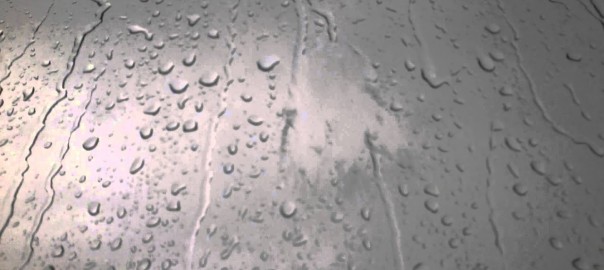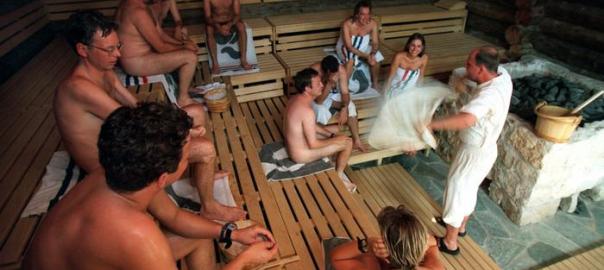Sunlight shone through the original wooden-framed windows and filled the bedroom. They swung their legs down, on opposite sides of the bed, pausing for a moment back to back, looking down at the bare floorboards. Neither of them had slept.
Ian had lain all night listening to Rosie next to him, waiting for her breathing to slow and become somnolent. It didn’t. She had turned back and forth under the summer duvet. His thoughts had been racing faster and faster. What would they say at work? What would his parents say? What should he do next? What was going to happen to them?
He made his way down the creaking stairs, in bare feet and shorts. He made their teas – English Breakfast for him, Earl Grey for her. Rosie joined him on the deck. They sat at the small, round orange-painted metal table, looking out over the beach to the sea. There was silence except for shrieking gulls and the waves lapping on the pebbles below. Usually he would have sung her a nonsense song with her name repeated often in it, to the tune of the muppets’ manamana. It didn’t seem appropriate this morning, as if there would never again be anything to laugh at between them.
He had not yet looked at himself in the mirror, but Rosie’s face was still and her eyes red and sad. He thought he must look worse.
“You’re quiet,” he said, looking at a fishing boat leaving harbour for the day.
“What do you expect?” she said, sniffing.
For what must have been the hundredth time since the previous evening he said, “I’m sorry.”
“Which bit are you sorry about exactly? Lying to me all that time? Running off with that boy? Not even giving me a baby to show for all this?” She was wiping away tears now, shaking her head as if trying to rid it of something.
“All of that. I’m sorry about all of it.
***
In January they met in the Napoli cafe on Kingsway, near Rosie’s work at Lincoln’s Inn. They sat next to each other in high chairs looking through the window. It was grey, wet and cold.
They wanted to agree the five examples of his unreasonable behaviour.
“Well, we can get the obvious ones out of the way first,” she said. She rummaged in her oversized bag for her battered notebook and opened it, curled receipts and dog-eared post-its falling out as she flicked the pages.
“He spent all his time in the evenings playing a flight simulator game on the computer, and I felt lonely,” she read out.
“OK, agreed,” he said.
“He never wanted to talk to me at breakfast time… and I felt lonely,” she continued.
He could see where this was going. “But,” he said, “we always had a laugh at breakfast… about the marmalade in your hair, or the sound the honey made when it came out of the squeezy bottle.”
She laughed. “That’s as far as I’ve got,” she said, resting her forehead in her hand. She brushed her hair back off her face. “Suggestions?”
Ian had thought she was going to come with the complete list. He had not been expecting to contribute to his own incrimination. “I suppose there is the obvious elephant in the room, right?” he said.
She put her pen down, crossed her arms and fixed him with her brown eyes, tapping her foot on the stool, arching her eyebrows. “What are you talking about?”
He pointed at the unfinished list. “Write this down: ‘He wants to shag gay boys’. That should cover it,” he said. “I feel it would be authentic to include that one, don’t you?”
***
Five days later Elizabeth, his solicitor left a voicemail saying the application had arrived from Rosie’s solicitor, and did he want to know what it said. He called straight back.
She went over the first four examples. “And the last one… ” she said. “‘Has left the marital home to pursue a homosexual lifestyle’.”
***
It had been ten years. Ian called Rosie’s house number in Kent from his flat in Limehouse. She always answered that one. “Look, I can’t really talk much,” he whispered into the phone. “Please call the police, Rosie. There are people, dealers I think, waiting for me outside the door. I can hear them talking about me.”
“You IDIOT! You’ve been taking drugs with those bloody flatmates of yours again haven’t you?” shouted Rosie. She hung up.
He waited, his ear pressed to the front door, holding his breath. Ten minutes later the phone rang and made him jump.
“It’s me,” Rosie said. “I called 999 and asked them to get the Met round to your flat. They’re on the way. They’ll be there soon. Don’t go anywhere OK? They’re going to take you to A&E.”
“I won’t,” he whispered. “Thanks… I’m sorry.”
***
“You will come to see me, won’t you?” Ian said, on the cordless phone the nurse had passed him. “Nobody else has.”
There was a pause. He sat down on the side of his bed. Would she?
“I have a lot going on… but I can visit you tomorrow afternoon,” said Rosie.
***
Rosie looked him up and down. “You’ve lost weight,” she said.
“Bet you never thought you’d say that, did you?” Ian said. “Must be the Class A diet.”
They laughed. The smiles faded. Ian said, “Look, thanks for coming, darling. I know it’s not easy for you, a place like this.”
“Well, no. But you came to see me didn’t you? Remember?” said Rosie.
“Yeah, I remember… I’m really sorry,” he said.
Angie, his nurse, popped her head around the door. “Everything OK?” she trilled.
“How long will he be here?” asked Rosie, turning round.
“They won’t keep him in for any longer than they have to – short of beds, you see. So I would guess about a week,” said Angie. “Here are your tablets, Ian.”
Rosie looked back at him. “He’s going to come to me by the sea to get better, aren’t you Ian?”
She looked back at Angie. “He mustn’t go back to that flat.”
“We can’t make him do anything, you know that,” said Angie.
“I know,” said Rosie, “I know.”
***
“Come on Ian. You can’t stay on your bed all day. I know you’re tired, but we’ve got that Shakespeare you asked to read. Everyone’s waiting at the table out there in the ward.” It was the new occupational therapist, Asha. She was young and keen, with pink string knotted round her wrists and wearing black Doc Martens with coloured flowers painted on the sides.
She had passed photocopies of an excerpt of Romeo and Juliet round the group of five patients who sat at the table. There was one chair left on the corner for him.
“Ian, how do you think we should do this?” Asha asked.
Lee, a 25 year old mixed-race guy with dreads interrupted, “I’m not doing any kissing. Just saying, like… I’m a young professional, you know.”
“That’s fine. I don’t think there is going to be any in this scene,” said Asha.
Ian looked at the paper. There were two pages, copied side by side. On one was Shakespeare’s original text, and on the other was a modern English version.
“I think one person should read out the page on the left. Someone else should read the page on the right, and then we can all say which one we prefer,” Ian said.
“Great idea, Ian,” said Asha. “Lee, would you help us out with the modern version?”
Lee squinted at the page, then read, hesitantly. “‘Oh… she teaches the torches to burn bright! … She glows in the darkness like a jewel in the ear of an African’. Hey man! Like Beyonce! ‘Her beauty is too good to be used and worn, too precious for this world. Like a white dove in a flock of crows, she stands out from all the other women. When this dance ends, I’ll see where she is, and then I’ll touch her hand and that will bless my ugly one. Did I ever love anyone before this moment? Renounce that love, my eyes! I never saw true beauty until tonight!’ … You know what? That’s pretty good actually,” he said.
“Ian. Can you do the original for us?” said Asha.
Ian folded his copy so that only the original was visible. “‘Oh, she doth teach the torches to burn bright!/ It seems she hangs upon the cheek of night/ Like a rich jewel in an Ethiope’s ear, /Beauty too rich for use, for earth too dear /So shows a snowy dove trooping with crows /As yonder lady o’er her fellows shows. /The measure done, I’ll watch her place of stand, /And, touching hers, make blessèd my rude hand. /Did my heart love till now? Forswear it, sight! /For I ne’er saw true beauty till this night’.”
The others doodled on their papers, smirked at each other. Some were dozing off. Asha said brightly, “Thank you guys! That was lovely! Now, which one did we like best?”
Immediately Lee said, “I like mine best. It’s more, like, … professional.”
Ian was still looking at the words. That was it. There was no contest. The last ten years of his life were like the first version – stark, ugly, empty.
“I like the original,” he said.









